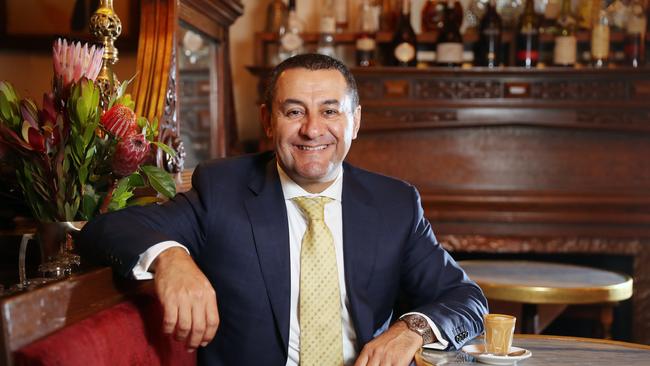Super funds warn of liquidity pressures from early access
The sector has broadly welcomed early access to super savings but some warn against compounding liquidity pressures.

The superannuation sector has broadly welcomed the decision by the federal government to allow those experiencing financial hardship due to the coronavirus to access a portion of their super savings but some in the industry have cautioned against compounding the liquidity pressures funds are already facing in the current market downturn.
The anticipated shutdown of non-essential services in Victoria and NSW, expected to take place from Tuesday, raises another issue for the industry, with Hostplus chief executive David Elia warning super funds may not be able to process such requests if the statewide lockdowns go ahead.
“In principle we support the government’s latest assistance package as it relates to the early release of super. However, we would like to better understand the detail around this,” Mr Elia, who heads up the $53bn Hostplus super fund, told The Australian.
Other considerations the super industry would need to factor in included “the impact on an already stressed system dealing with current member queries relating to the recent investment market volatility and the consequential reduction in member account balances,” Mr Elia warned as he noted that many funds were already at “full capacity” in dealing with related member inquiries.
“From a practical perspective, we also don’t have any understanding around how super funds, which are also managing the risks to their own employees from COVID-19, will be able to implement and respond to this new requirement as various states, including Victoria and NSW, move towards a total shutdown, which is (expected) to occur early next week.
“It’s going to be virtually impossible for (super) funds to do anything if this is the case,” he warned.
Industry Super Australia chief executive Bernie Dean cautioned that providing early access to super had to be handled very carefully “in order to prevent the compounding of liquidity pressures” super funds may already be facing.
After a knockout performance in 2019, in which the average super fund returned 15 per cent, and the top funds returned more than 20 per cent, the sharp market downturn has hit super funds hard in recent months. The median growth fund fell 3.1 per cent in February and lost a further 10 per cent to March 17, according to the latest data from super research house ChantWest.
Mr Elia also predicted that many members “would not want to crystallise current losses by unnecessarily accessing their super accounts”, while Geoff Lloyd, chief executive of the nation’s largest retail super fund, MLC, said “selling at the bottom is not a great outcome for anybody” but that access to super was about helping people get through to the other side of the crisis.
The government’s approach was “pragmatic, considered and sensible” and had come at the right time, Mr Lloyd said. The maturity of Australia’s super system allowed for a “Team Australia” response to the coronavirus crisis, he added.
The move to allow those in financial hardship to access super would see an added level of liquidity demand on funds at a time when liquidity was already tight, Sunsuper chief investment officer Ian Patrick said.
“Whether it’s liquidity in the corporate credit markets, or members switching from diversified, multi-asset portfolios to cash, or the currency depreciating and there therefore being mark-to-market effects on liquidity from that, we are now looking at an additional level of liquidity demand,” he said.
“This is a very human crisis, with very real impacts on incomes of average Australians and I’m not detracting from that. I can well understand measures that help to supplement incomes.
“But (these measures) are going to fundamentally alter investment strategies in the weeks, months, and years ahead,” Mr Patrick, who heads the investment team at the $70bn Sunsuper super fund, warned.
At a time when risk assets are increasingly cheap, funds may not be able to allocate as much capital as they would like to those assets if they are called on to return that capital to members, he said.
Funds would also have to monitor liquidity, cash and redemptions on a daily basis to be prepared for the hardship requests, Mr Lloyd said.
MLC had gone into the market downturn in a very defensive position as the fund had been expecting a correction, he said, as he predicted only 1 per cent or 2 per cent of MLC members would need to take advantage of the hardship access to super.
“Our funds are generally quite liquid. We don’t have large amounts of real assets or unlisted assets. Some funds do. And they might be in sectors that might be affected by workers who will be calling on hardship,” he added.
Funds that hold a lot of unlisted assets and see a spike in the number of hardship cases would struggle to “strike a true price” for their assets in the current environment, Mr Lloyd warned.
In general, industry funds tend to have higher allocations to unlisted assets such as property, infrastructure and private equity.



To join the conversation, please log in. Don't have an account? Register
Join the conversation, you are commenting as Logout